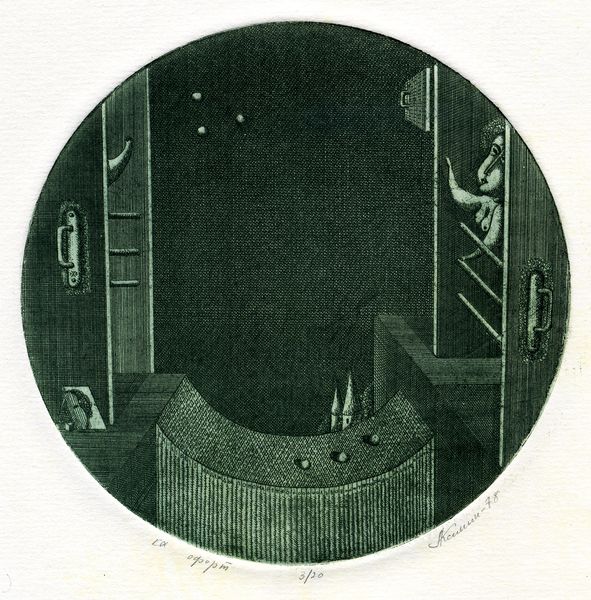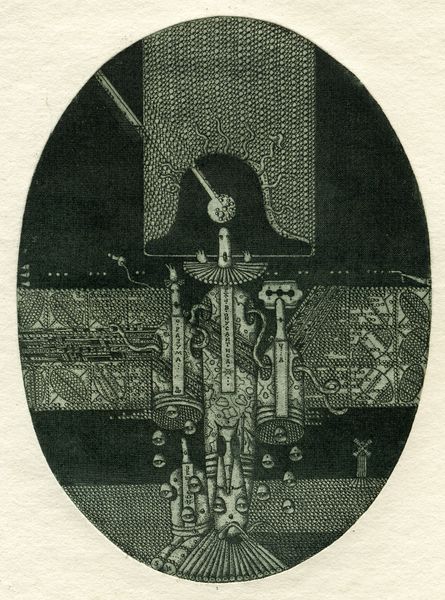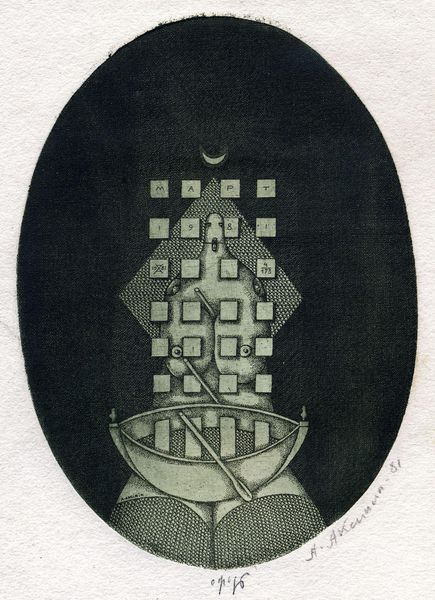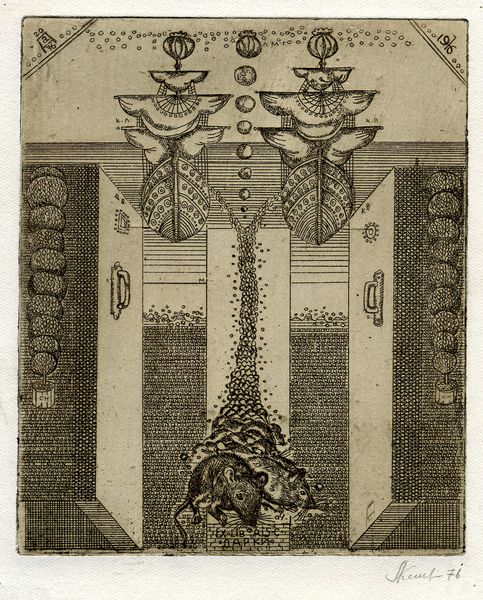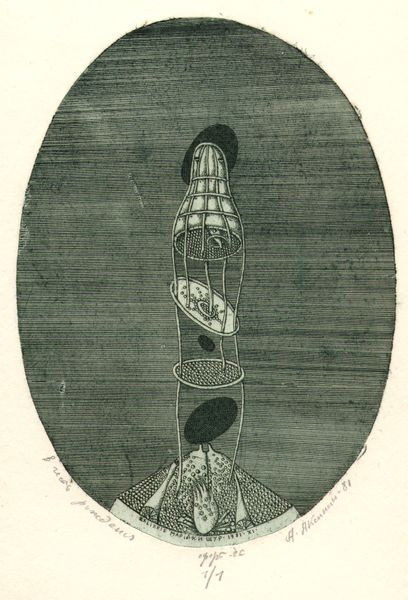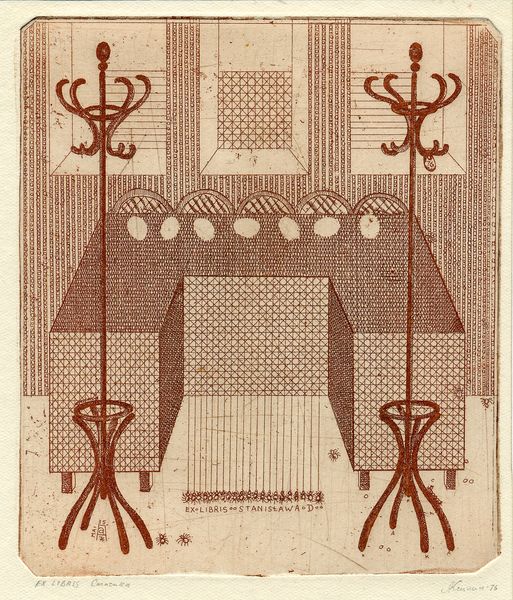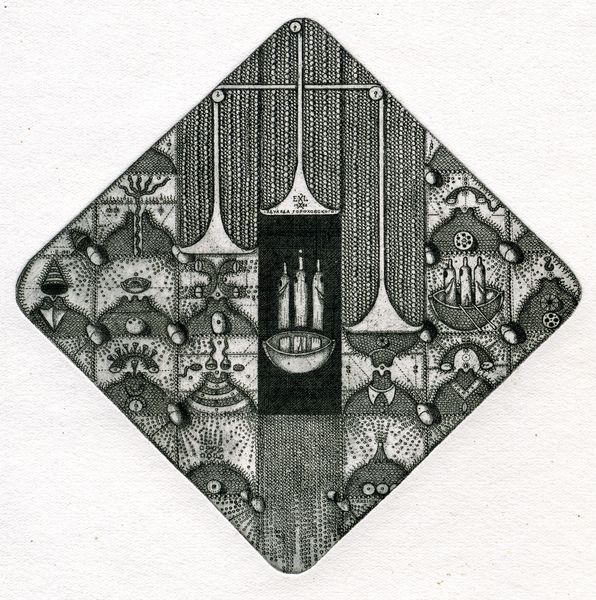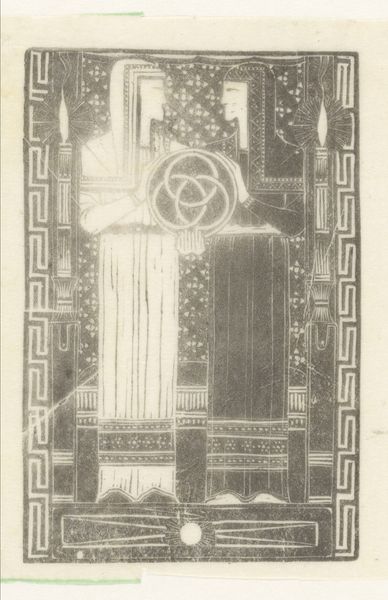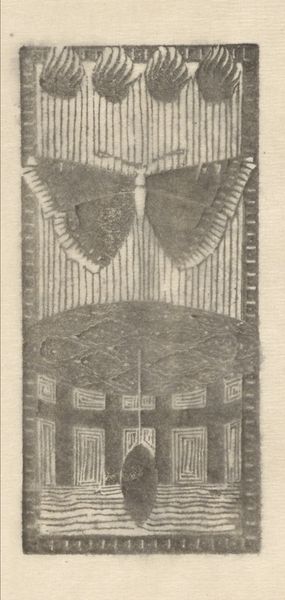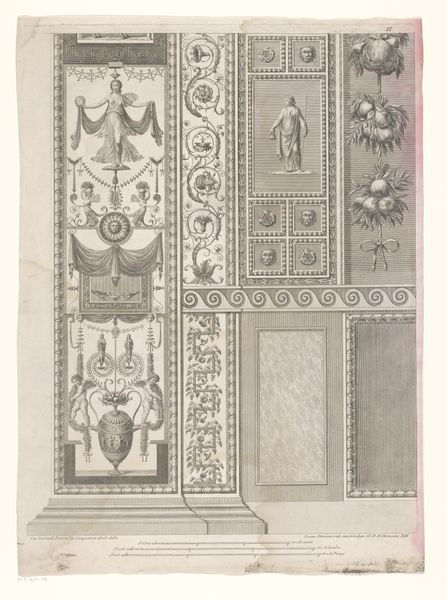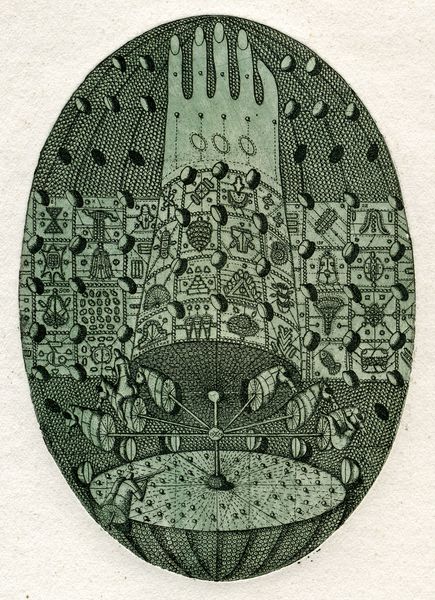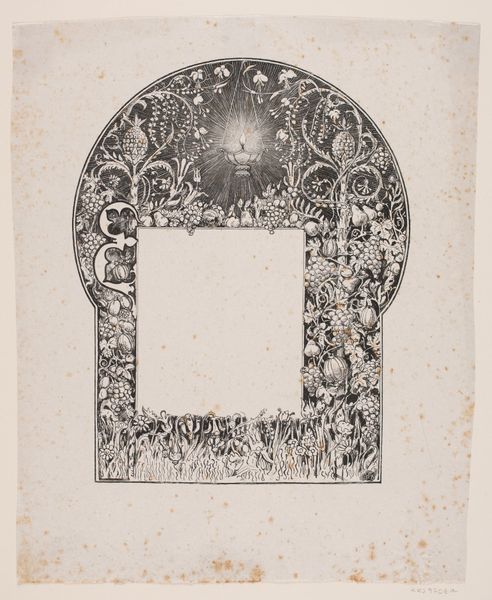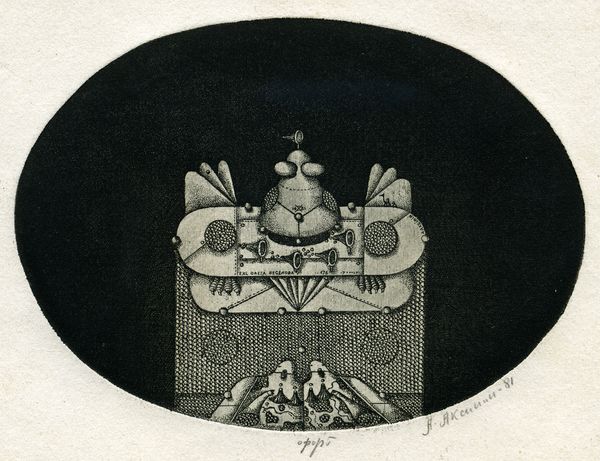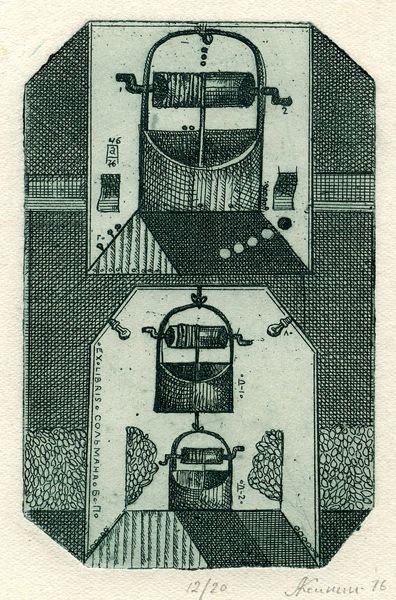
drawing, print, etching, intaglio
#
drawing
# print
#
etching
#
intaglio
#
monochrome
Copyright: Oleksandr Aksinin,Fair Use
Curator: This intimate artwork is Oleksandr Aksinin's 1980 intaglio etching, "Exlibris of Tanya K." The work operates as a personalized bookplate, rendered in monochrome tones. Editor: Monochrome is right. This thing is somber, almost haunting. Like peeking into a forgotten scholar's dusty study, lit by a single, ethereal light. You just know the silence in that room is thick enough to spread with a knife. Curator: That mood resonates strongly with Aksinin's broader artistic concerns. He was working in Soviet-era Ukraine where cultural expression was often heavily policed. This quiet interior could signify a space of personal freedom, intellectual resistance, perhaps even coded dissent accessible only to the initiated. Editor: Initiated, huh? The curtain above that bust definitely looks like a masked figure staring back at me. Is it a Rorschach test or some avant-garde, Eastern Bloc batman lurking in the shadows? Either way, it’s super unnerving. Curator: Well, consider also the 'Exlibris' tradition itself—claiming ownership of knowledge, carving out space for intellectual identity in a regime that often sought to collectivize thought. Tanya K., whoever she may be, possesses books; she values ideas. And Aksinin visualizes that assertion for her. Editor: Makes you wonder what Tanya was reading! Maybe samizdat copies of Orwell, or Derrida smuggled in from Paris. This makes the etching even more compelling—it’s a little badge of rebellion, a quiet assertion of individuality amidst the gray of conformity. Curator: Exactly. And Aksinin, operating within that complex environment, used techniques like intaglio—etching and engraving directly into the metal plate—to create detailed, evocative miniature worlds brimming with symbolic weight. He pushes against the imposed cultural narrative, creating avenues of subjective interpretations, a hallmark of much dissident art from that period. Editor: I guess it is more than just some gloomy room. All that deliberate artistry gives the image real gravitas—makes me appreciate the craft involved and how carefully it seems staged. I can almost feel the texture of the paper and ink… it's beautiful in a strange way. Curator: Beautifully defiant, perhaps. Ultimately, the power of "Exlibris of Tanya K." lies in its capacity to prompt reflection on those intricate dynamics of art, identity, and resistance during a complex era. Editor: Agreed. Makes me want to dig into some banned books now. See what other secrets are hiding in plain sight.
Comments
No comments
Be the first to comment and join the conversation on the ultimate creative platform.
